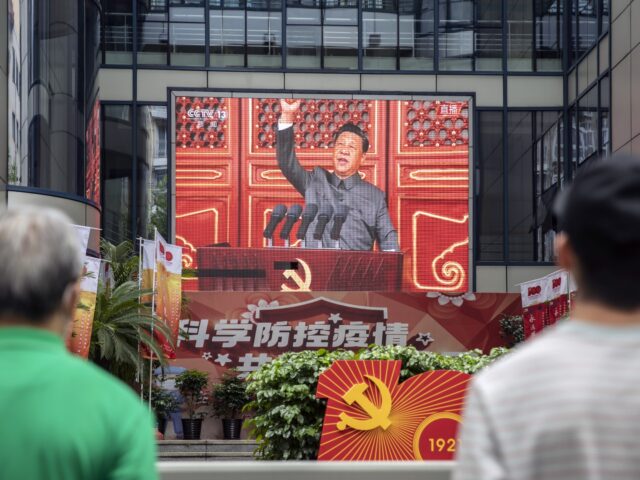Communist China represents an “epoch-defining challenge” to the Western world as it advances towards becoming a “technological superpower”, a top security official in the United Kingdom has warned.
At the annual CyberUK conference in Belfast on Tuesday, the head of the National Cyber Security Centre (NCSC) Lindy Cameron gave her most ominous warnings on the threat posed by the communist regime in Beijing and urged Western powers to not underestimate the “dramatic rise of China as a technology superpower” which it intends on leveraging to achieve a “dominant role in global affairs”
According to a readout of her speech provided to The Times of London, the head of Britain’s cyber protection apparatus said:“Bluntly we cannot afford not to keep pace otherwise we risk China becoming the predominant power in cyberspace,” adding that countering Beijing’s potential tech dominance represents an “epoch-defining challenge” to the West.
“China has identified several existing and emerging technologies as being vital to its future national security. And it has an aspiration to become a world leader in setting technological standards. So we need to be clear: China is not only pushing for parity with Western countries, it is aiming for technical supremacy. It will use its tech strength as a lever to achieve a dominant role in global affairs.
“What does this mean for cybersecurity? Bluntly we cannot afford not to keep pace otherwise we risk China becoming the predominant power in cyberspace. Some may dismiss this as far-fetched or scaremongering, but it is a risk I would urge you to take seriously. This is simply not something about which any of us can be complacent.”
Macron: Europe Should Reduce Reliance on U.S. Dollar, Avoid ‘Following America’ into Conflict with China https://t.co/YvVYV9qCTe
— Breitbart London (@BreitbartLondon) April 10, 2023
The warning comes amid increasing concerns that Chinese dictator Xi Jinping may launch an invasion to capture the island of Taiwan, a self-governing democracy that Beijing claims the right to, despite Taiwan having its own distinct culture, military, and written language from the mainland and the fact that the Chinese Communist Party has never ruled over the island in its history.
It appears that the West may be fractured on whether it would support the Taiwanese should the Chinese cross the Straight and wage war upon the island. Earlier this month, French President Emmanuel Macron — on the back of a meeting with Xi Jinping in Guangdong — said that Europe should not “follow” the United States into a war with China over Taiwan.
Should Beijing capture Taipei, it would represent a severe threat to the global supply of semiconductors, a crucial component in nearly all forms of modern technology. Currently, Taiwan produces over 60 per cent of the entire world’s supply of semiconductors and over 90 per cent of the most advanced models. Control of the industry by the CCP would thus give Xi Jinping the ability to blackmail the West on a host of issues with the threat of shutting off supplies of the crucial components.
Meanwhile, in Britain, Prime Minister Rishi Sunak has been less conciliatory to the Chinese than his counterpart in Paris, yet he has so far refused to label the regime as a “strategic threat” as his predecessor Liz Truss reportedly intended on doing before being unceremoniously removed from Downing Street by Sunak and his pro-China chancellor, Jeremy Hunt, who happens to be married to a literal Chinese propagandist.
Going back to his time as finance chief under Boris Johnson, Sunak has long expressed a desire for the UK to deepen trade ties with China. Some have questioned his motives for doing so, as he married into the family of the founder of Indian tech giant Infosys, which still reportedly owns two Chinese subsidiaries.
British Political Elites Have Been 'Bought' by Beijing, Warns Brexit's Nigel Farage https://t.co/xpxDtMqKBG
— Breitbart London (@BreitbartLondon) February 18, 2023
Follow Kurt Zindulka on Twitter here @KurtZindulka

COMMENTS
Please let us know if you're having issues with commenting.